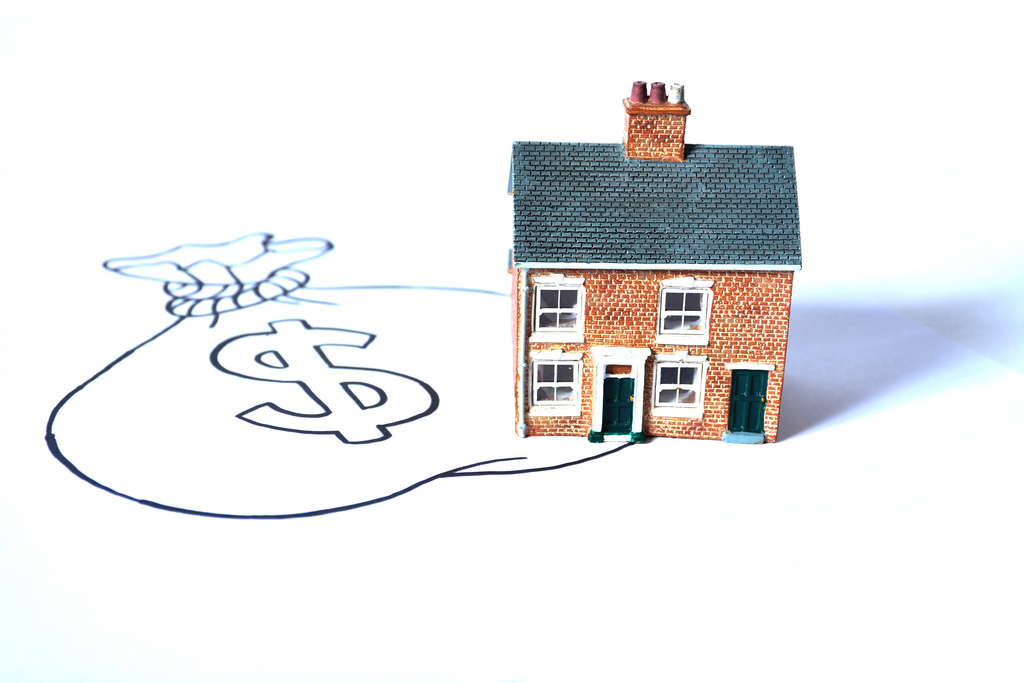
At 23, Robin Bourbeau had a $80,000-a-year job, no debts and enough money for a 20 per cent down payment on a $400,000 home. His mortgage broker, Phil Cragg, sent him house shopping with a blessing.
But when Bourbeau, whose father is a Global News employee, put a conditional offer on a house, he was told he couldn’t get a mortgage – because he didn’t have a credit card.
Bourbeau was what consumer credit rating company Equifax calls a “beacon reject,” someone with no credit history, said Cragg, director and mortgage agent at Mortgage Outlet in Ottawa.
Bourbeau, a nuclear operator in training at Ontario Power Generation, hadn’t touched a credit card since he was 18, when he briefly owned a PC Mastercard, quickly ran up its $500 credit limit and forgot to pay his bill. As soon as he realized he had an outstanding charge, he paid off his debt and shut down his account, he said. And he never used credit again – until he tried to apply for a mortgage.
Bourbeau was eventually able to buy the house but had to get his parents to co-sign the loan.
“It’s stupid,” he said. “Doesn’t the fact that I have no other debt make me extremely reliable?”
That’s a question mortgage brokers may start to hear more often as millennials hit the age when they want to settle down and buy a house.
After experiencing the financial crisis in their formative years, today’s younger homebuyers are far more careful with credit than their parents and grandparents have been. In the U.S., just one in three millennials have a credit card, according to a recent survey by Bankrate.com.
In Canada, millennials aren’t quite as credit-shy as their American peers. The non-mortgage debt balance of Canadians born between 1980 and 1994 rose by 12.6 per cent between the end of 2016 and the end of 2017, according to consumer credit reporting agency TransUnion.
But Toronto-based mortgage broker David Larock said he’s come across his share of plastic-free millennials.
Although he’s had a few clients who don’t have a credit history, “I do notice an increase with millennials,” he told Global News.
The importance of having credit
But why is it, exactly, that someone like Bourbeau can’t get a mortgage?
“In the lending world, you tick boxes,” Larock said. “The credit score is a fundamental part of the [mortgage] application.”
Lenders want to see that you’ve been borrowing and repaying relatively small amounts of money for a while before they sign off on what is likely going to be the biggest loan of your life, Larock added. If you don’t have a borrowing history, they don’t know what to make of you.
“It’s a bit like trying to get car insurance. It’s better to be someone who has been driving for 10 years and had two car accidents, than someone who passed the G2 [driving test] and hasn’t been driving since.”
You don’t need to have a credit card to build a credit record, although plastic is the easiest way for many people to do so. A student or car loan will also do, Larock said. But you do need to show two years of borrowing history, at least two so-called trade lines, or two accounts listed on your credit report.
“You can get a very low-fee credit card and if you use it once or twice a month, that’s all you really need,” Larock said. “You don’t have to blow your brains out.”
Ultimately, though, “it does make logical sense that [lenders] want to see some track record of repayment in order to be comfortable that you’ve demonstrated [that you are a responsible borrower],” Larock said.
But what about paying bills?
But a credit-rating system that rejects candidates like Bourbeau ignores a number of other behaviours that indicate financial responsibility.
“I’ve been paying car insurance since I was 18,” Bourbeau told Global News.
Shouldn’t the ability to keep up with rent, utilities and cellphone bills for years count for something?
“That’s the existential question that a lot of people have been asking,” said Karan Kaul, research associate at the Urban Institute, a nonprofit research organization based in Washington, D.C.
South of the border, says Kaul, there is an increasing sense of urgency in the lending industry about reaching out to those who have little or no credit history.
Financial institutions are keenly aware there is a broad and underserved market of such potential borrowers – not only millennials but the millions of American households with no bank account or just a bare-bones chequing account.
Consumer credit score giant Fair Isaac Corp. (FICO) has been at the forefront of efforts to develop so-called alternative credit scores for people who can’t be using credit bureau data alone. And the idea has caught the attention of Silicon Valley, too, with tech startups working on pulling rent payment data or aggregating bank account information, said Kaul.
But gathering high-quality data on bill payments in a form that lenders can use remains a challenge for now.
For example, most rental homes are owned by “small investors who don’t report to a credit bureau,” Kaul said.
The other challenge is that no one knows whether people’s ability to pay bills is actually a good predictor of how they’re going to behave as borrowers.
“My guess is that [bill-paying data] has predictive power,” Kaul said. But we don’t have much evidence, for now.
Finally, the third step – assuming the right kind of data and predictive algorithms eventually emerge – would be to change the ingrained habits of the financial industry and get lenders to actually use the new tools, Kaul said.
He is hopeful that alternative credit scores will be able to provide supplementary evidence for borrowers with so-called thin credit files. But a world in which we rely on bills rather than credit cards to evaluate creditworthiness is still far off, he said.
“It’s possible that in 15 or 20 years, we’ll look at people’s bill payment without a need for a borrowing history,” he told Global News. However, he added, “I don’t think that’s around the corner.”
As for Bourbeau, he’s still determined to live credit-card free. Paying off the mortgage, he said, will help him build enough of a credit file.
“You shouldn’t have to live borrowing month to month.”
Source: https://globalnews.ca/news/4167264/mortgage-credit-history-canada-alternative-credit-scores/

